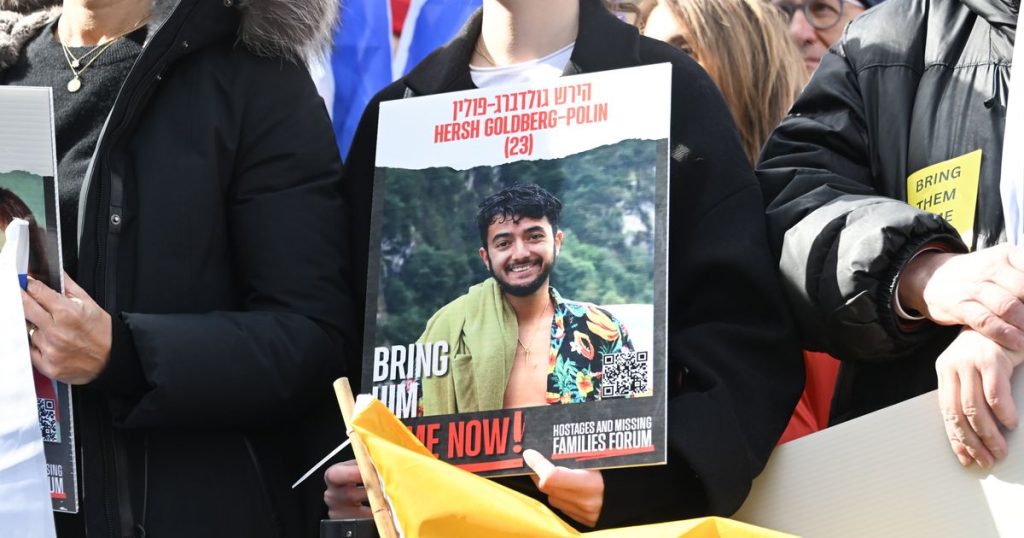The family of Israeli-American hostage Hersh Goldberg-Polin announced his death in the Gaza Strip, following the Israeli army’s discovery of bodies in Gaza. Goldberg-Polin, who was among the hostages seized by militants at a music festival in southern Israel on October 7, was just 23 years old and had lost part of an arm in the attack. His parents became high-profile advocates for his release, meeting with political leaders including President Joe Biden and Pope Francis, and addressing the United Nations as well as the Democratic National Convention.
Despite efforts by his family and supporters to raise awareness and urge the Israeli government to secure his release, a Hamas-issued video in April showing Goldberg-Polin speaking under duress sparked new protests in Israel. The family’s announcement of his death has intensified the pressure on Prime Minister Benjamin Netanyahu to negotiate a deal to bring home the remaining hostages. Netanyahu has previously emphasized the need for military pressure to secure their release, as cease-fire efforts have failed to make progress.
Before the family’s statement, Israel believed that 108 hostages were still being held in Gaza, and approximately one-third of them had already died. The situation has brought attention to the ongoing conflict between Israel and Hamas, with calls for greater efforts to secure the release of the remaining hostages. The tragic death of Goldberg-Polin has reignited public outcry and demands for action to ensure the safety and recovery of those still held in captivity.
As the Goldberg-Polin family mourns the loss of their son and brother, they have expressed gratitude for the support and love they have received from around the world. Their plea for privacy during this difficult time highlights the emotional toll of the situation and the need for compassion and understanding. The devastating impact of hostage situations on families and communities underscores the urgency of finding diplomatic solutions to prevent further tragedies.
The international attention on the Goldberg-Polin case has shed light on the complexities of hostage situations in conflict zones, where individuals are caught in the crossfire of geopolitical tensions. The family’s relentless advocacy for his release and the global response to his death underscore the human cost of violent conflicts and the importance of diplomatic efforts to ensure the safety and well-being of those affected. The legacy of Hersh Goldberg-Polin will continue to resonate as a symbol of the ongoing struggle for peace and justice in the region.



